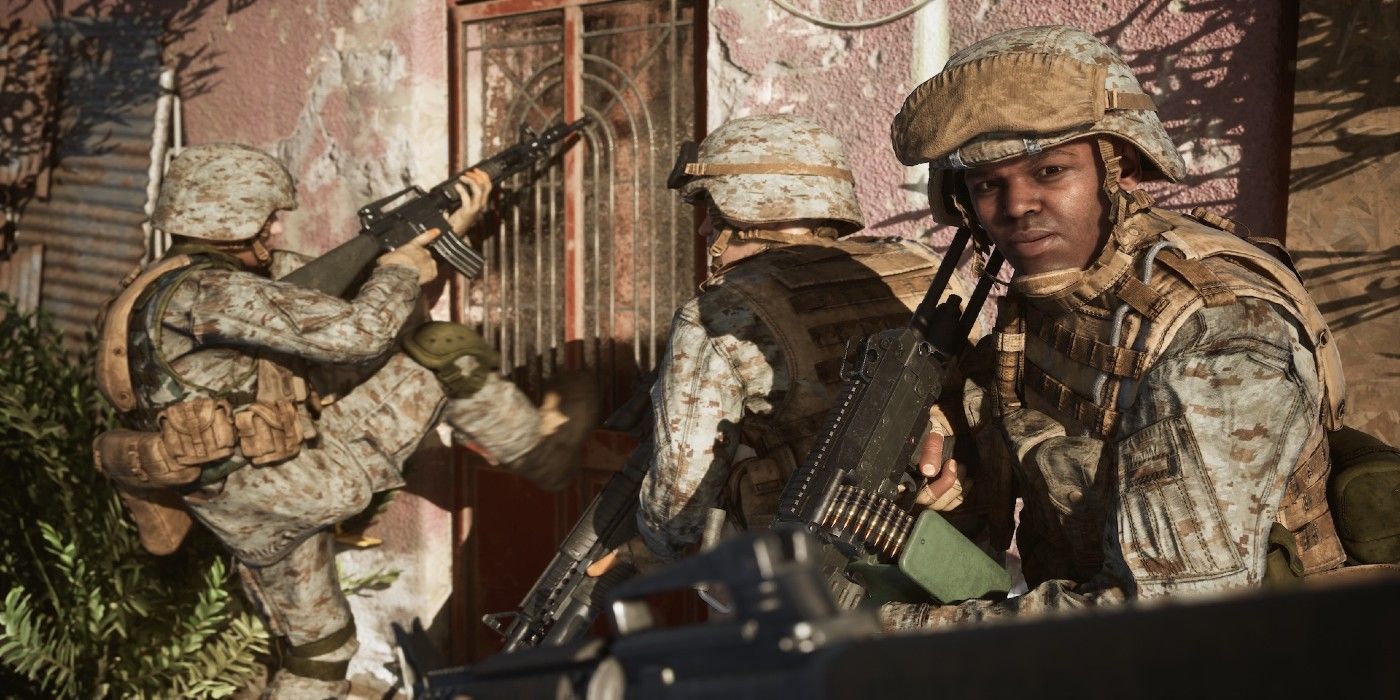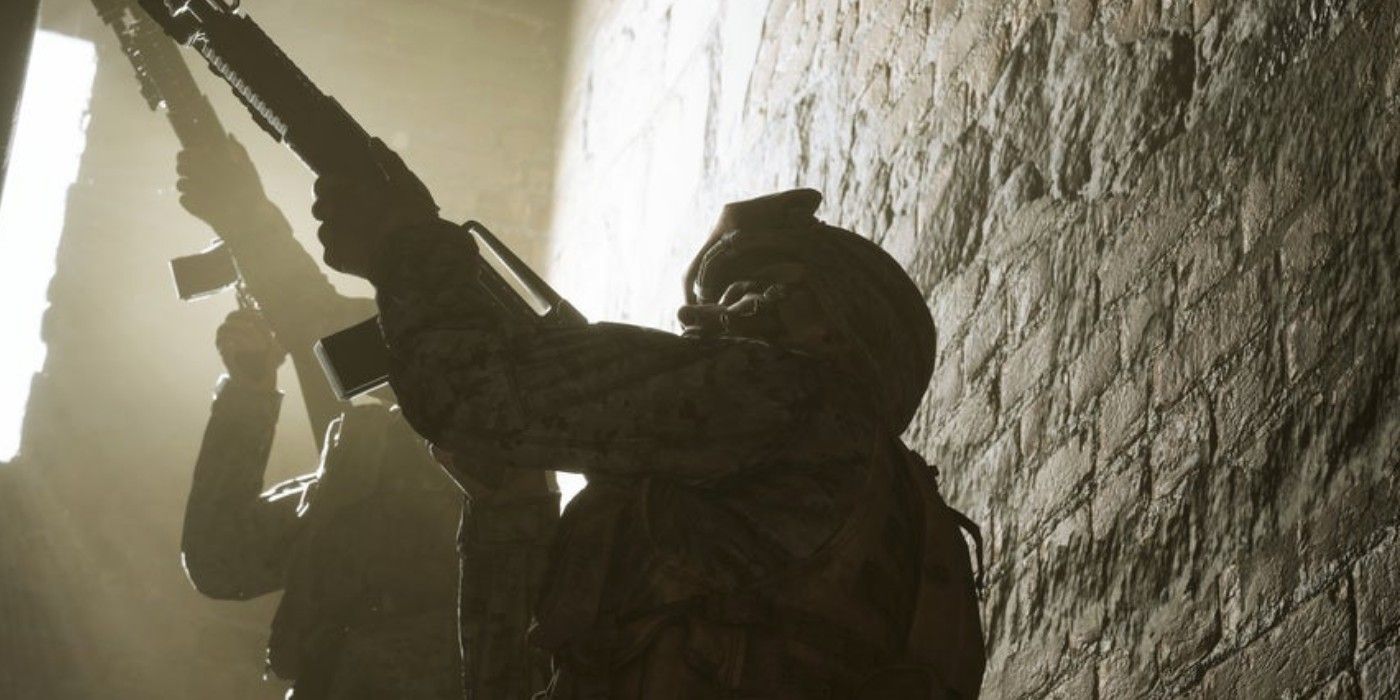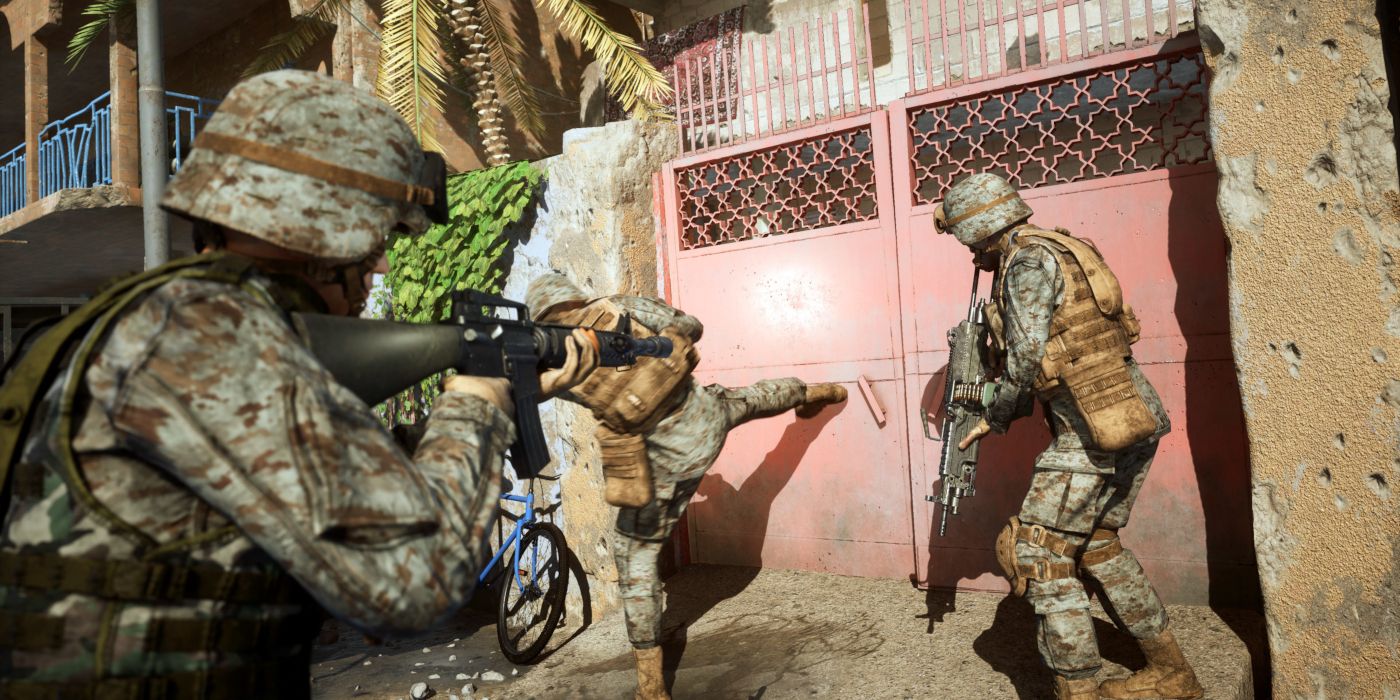Six Days in Fallujah is an upcoming first-person shooter game, being developed by Highwire Games, and it's set to be published by Victura. The game might not sound too familiar to some gamers, but the title has had a long and controversial history. Originally, the military tactical shooter was going to be published by Konami, which ultimately backed out of the deal due to the issues surrounding the game. Six Days in Fallujah is set during the Iraq War, with players taking on the role of soldiers in the 3rd Battalion, First Marines, who participated in the Second Battle of Fallujah. This took place over 6 days in November 2004.
The game had previously been thought to have been canceled, with the last official word on the game being in 2010 when then-developer Atomic Games claimed it was finished and ready to be released. These comments came after Konami decided it would be in its best interest to no longer publish the game in 2009, with Atomic Games then struggling to acquire a new publisher. Following this, the developer experienced layoffs, and after this point, a large portion of the gaming community considered it to be canceled though officially the individuals at the developer would state otherwise. Now, in 2021, Six Days in Fallujah is set to be released with Highwire Games as the new developer, with Victure set to publish it.
The Controversy
The main source of the initial controversy stemmed from veterans and anti-war groups alike, who opposed the game for several reasons. One of the main reasons for this opposition was that the Second Battle of Fallujah was a bloody affair, which saw the loss of as many as 6,000 lives throughout its 6-day duration. Some gamers and non-gamers alike feel as though it's bad taste to release a recreation of one of the deadliest conflicts from the Iraq War, especially with a realistic tactical shooter slant on it, like the direction Highwire Games are taking the title in. Despite the implications of creating a game tackling this subject matter, Peter Tamte, head of Victura stated it isn't a political commentary and that the team is looking to craft an experience reflective of the individuals who were involved in the conflict.
A core aspect of the controversy regards questions over how authentically the game will portray the events of the Second Battle of Fallujah. The battle is known to have been serious with a large loss of life, and there have been renewed questions regarding how accurate the portrayal of it will be. For example, the United States military has admitted to using White Phosphorus in Fallujah directly against citizens, and while the use of it as smoke to obscure movement is acceptable, the Chemical Weapons Conventions prohibits its use in such a manner. Furthermore, the game is set to feature Al-Qaeda as enemy combatants, which obfuscates the situation based on facts such as men of a certain age not being allowed to evacuate. To this day, a lot of innocent civilizations are known to have lost their life, but records indicate numbers with an "at least" statement, because there's a lot of unknowns. This battle dehumanizes those civilians.
These tactics used by the US Army were deemed controversial by some, and there have been questions raised as to whether the developer will choose to include these elements. However, it seems unlikely to show the aforementioned actions in full detail and light; it's doubt a medium like video games could or should. The developer has been accused of taking a "US-centric" approach to the battle, with many expecting that many fact-based aspects of it will be excluded. It was hard to predict that Six Days in Fallujah would ever restart active development, but the controversy was bound to return with it.
There have been further accusations that Highwire Games and Victura will be using Six Days in Fallujah as a recruitment tool for the US Army. These concerns stem from a past occupation of Victura CEO Peter Tamte as founder and president of Destineer. That might be a familiar name to some gamers as a publisher of titles such as Ages of Empires 2, Ages of Empires 3, and Neverwinter Nights, but in 2005 the group partnered with a company called In-Q-Tel. In-Q-Tel is an organization that that invests in technology companies on behalf of the CIA, to keep the intelligence agency up-to-date on the latest technologies. This previous association has been a cause for concern for some of those in opposition to the game, despite Victura refuting claims that it's a tool for recruitment.
What the Controversy Means for the Game
Recently, the return of Six Days in Fallujah has been making news within the gaming community, along with the controversy surrounding it. Since the title has restarted development, it's hard to know yet what exactly this means for Six Days and how it will be ultimately received when it is released. Highwire Games and Victura has stated that they're looking to create a more documentary-style experience, rather than glorify war. The teams have conducted interviews with real-life veterans of the conflict, quickly after the event transpired and as recently as this past year, and they're set to feature as allies to the player when the game is released. Additionally, dozens of civilians who lived through the combat have been interviewed, as the developer is planning on including narrative content centered around non-combatants, where the player will take on the role of Fallujah residents.
For a lot of gamers, it's hard to tell how Six Days is going to turn out until it has actually been released. As seen with the cult hit Spec Ops: The Line, it is possible for a developer to craft a well-received war game and have it widely praised for its narrative, but for some, Six Days in Fallujah remains too close to home. Other than it being a particularly loss-heavy conflict, the developer is using likenesses of actual Fallujah veterans and voice recordings, which some have considered to be inappropriate. The recordings and imagery will be used as tools to tell the story of the Second Battle of Fallujah with integrity according to the developer, but until release, it's difficult to know how the implementation will turn out.
With talent such as ex-Bungie composer Marty O'Donnell on board along with some former Destiny developers, Six Days in Fallujah has every chance to play well and sound good, but what remains uncertain is how the Second Battle of Fallujah will be portrayed. Highwire and Victura have doubled down on claims that they're seeking to create an authentic military shooter, detailing the experiences of soldiers on the ground during the conflict. For some gamers and non-gamers, the competency of its shooting mechanics isn't the issue, it's the portrayal of the event and how it's going to be handled. Until the title releases, it might be difficult for Highwire and Victura to have their game fully understood.
Six Days in Fallujah is set for release in 2021 on PC and unspecified consoles.



